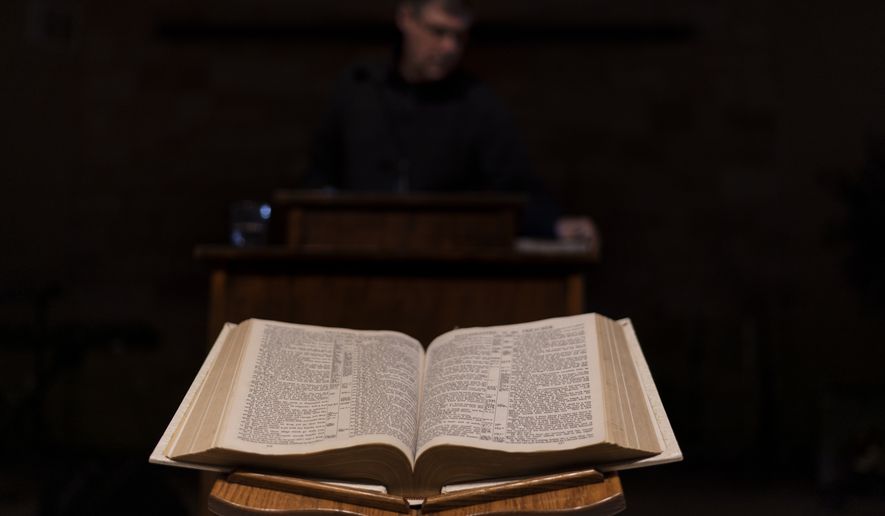About 44% of Americans say the nation would be worse off without the Bible, the American Bible Society reported in the first installment of its 2023 State of the Bible survey.
Another 41% said the nation would be “about the same” were the Scriptures absent from society, while 14% said America would be better if the Bible were excised from the country.
Bible reading has fallen to 39% of Americans in 2023, a precipitous decline from a pandemic-era high of 50% of Americans surveyed in 2021. Currently, 24% of American adults read the Bible at least once a week apart from a church service.
When asked why they read the Bible, 47% of active readers responded, “Because it brings me closer to God,” the survey said.
The numbers are part of an annual canvas of Americans conducted for the Philadelphia-based group by the National Opinion Research Corporation each January.
It shows women, at 41%, are more likely to be Bible readers than men (36%) and that Black Americans (57%) and older citizens (48%) are most likely to read and engage with the Bible. Asian Americans (27%), White Americans (35%) and members of Generation Z (35%) are least likely to be Bible readers.
Members of evangelical (70%) and historically Black (68%) congregations top the list of the Bible-engaged, while Catholics clock in at 37%, the lowest figure according to the survey.
About 10 million Americans said they were “friendly” toward the message of the Bible even if they’re not active readers of the Scriptures. That group moved into what the society called the “Movable Middle” of Americans who are exploring the Bible’s message, a cohort estimated at 76 million people.
The society, which said it would release subsequent installments of the survey monthly through December 2023, said its research revealed that regular readers of the Bible reported higher levels of hope than other Americans.
Using a ranking called the Persevering Hope Scale, which is derived from research conducted by scholars from several universities, the society survey found the scripturally engaged reporting a 4.1 hope score, versus 3.7 for those who don’t read the Bible.
“No other demographic group scored that high,” the report text said of the “Scripture Engaged” category. “Apparently those who read the Bible regularly, who live and think according to its teaching, find resources that keep them going, even in tough times.”
One official at the group said the level of Bible engagement should be a wake-up call.
“Our research this year delivers an urgent message for those ministering in America. Although it’s a relief that the number of Bible users did not continue along its precipitous decline, there remains a pressing need to help spiritually engage an expanding Movable Middle — those individuals who are friendly to the Bible’s message but not actively reading and applying Scripture’s truths,” said John Farquhar Plake, the society’s chief ministry insights and innovation officer.
NORC, an independent social research organization based at the University of Chicago, used its AmeriSpeak research panel to draw respondents for the State of the Bible polling.
The society said data came from 2,761 online interviews with American adults in all 50 states and the District of Columbia, and has a margin of error of plus or minus 2.59 percentage points.
The first installment of the survey can be found at State_of_the_bible-2023.pdf (americanbible.org).
• Mark A. Kellner can be reached at mkellner@washingtontimes.com.




Please read our comment policy before commenting.